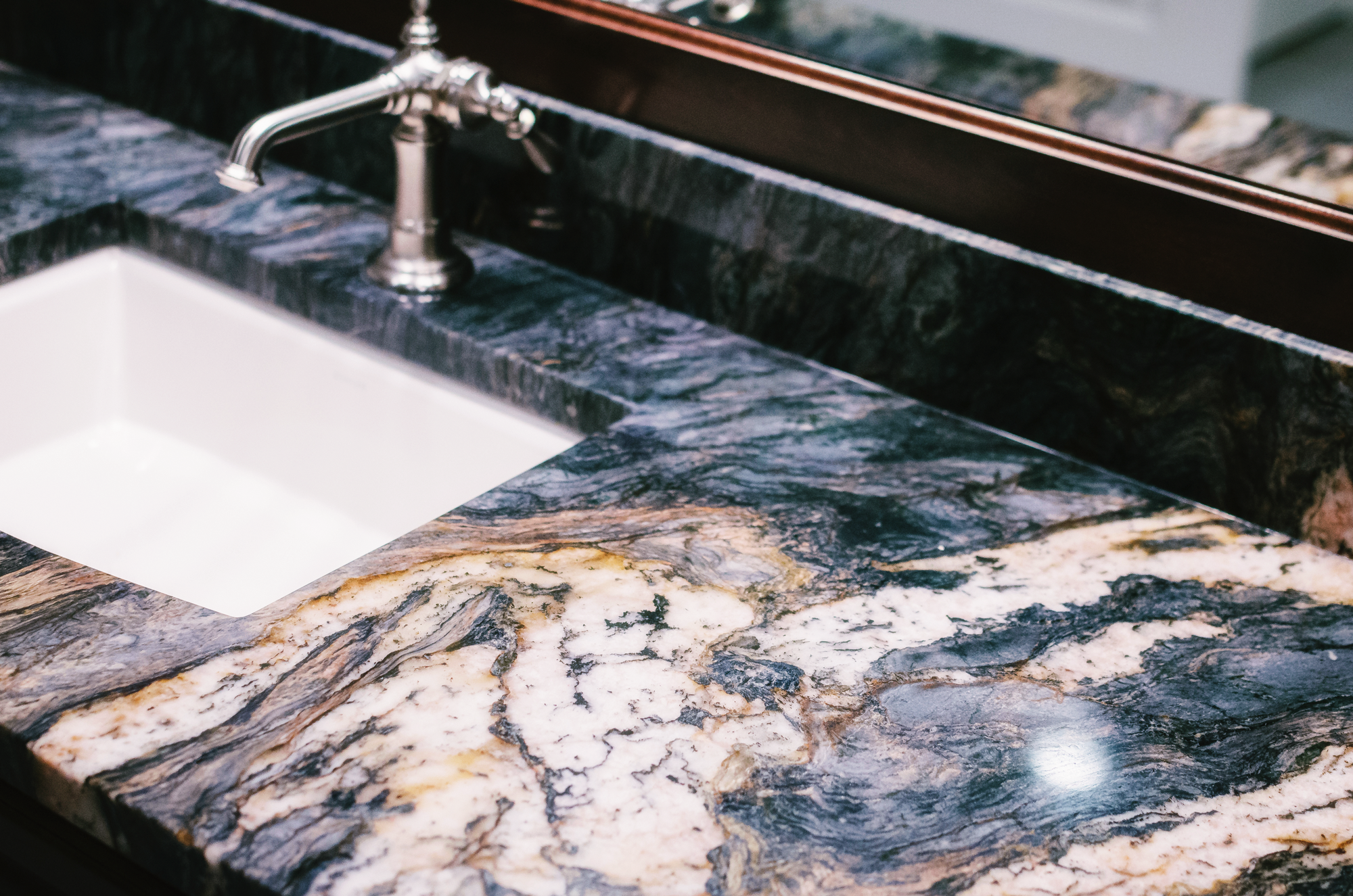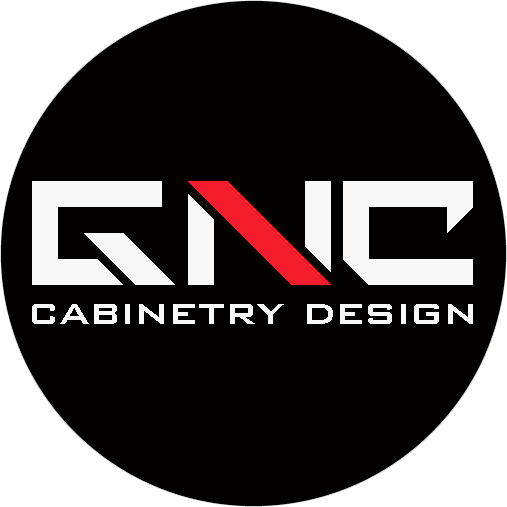Quartz vs. granite countertops is a heated debate among interior designers, but whether one material is better than the other comes down to what your home needs from a countertop. This guide will discuss the differences between quartz and granite countertops and the best qualities of each type of stone, so you can determine which is the best choice for you.
What is Quartz?
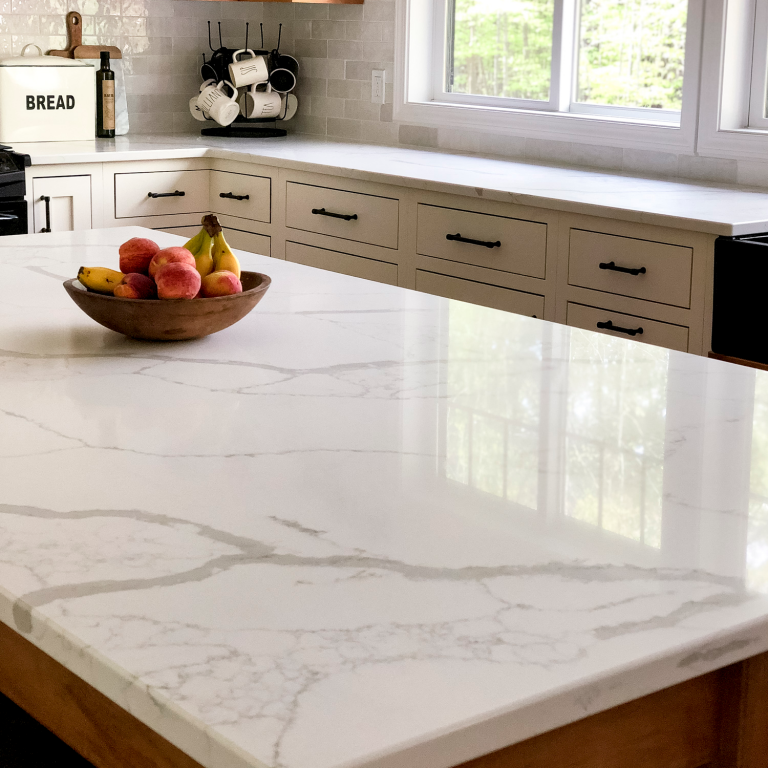
Quartz is an abundant natural stone, but when formulated into a countertop, it is considered “engineered stone.” Engineered stone countertops are created from crushed quartz crystals combined with resin and other synthetic materials, such as pigments. Thanks to this artificial production,quartz countertops have benefits not available to natural stone countertops.
What is Granite?
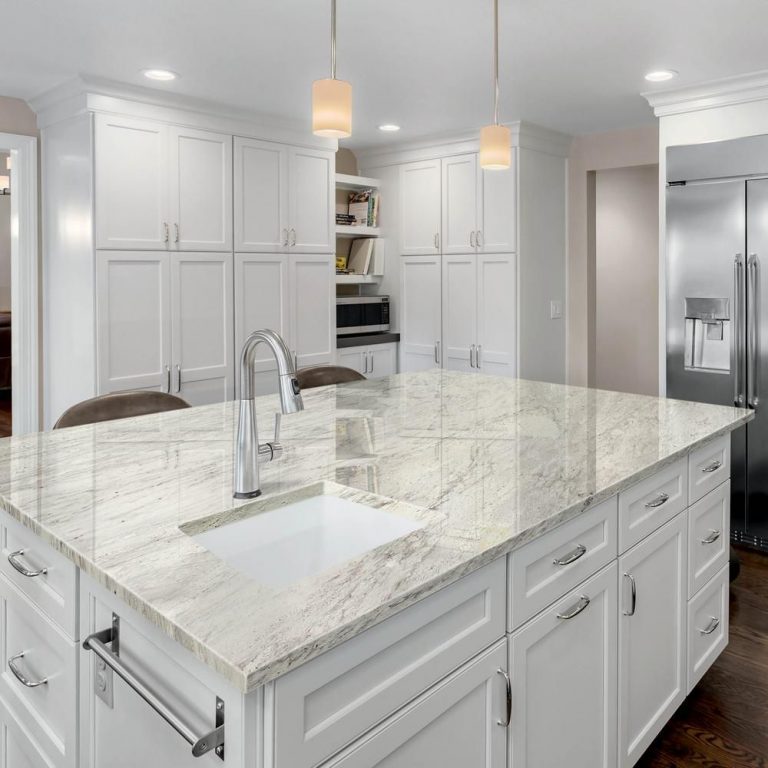
Granite is a pure, natural stone mined from quarries in whole slabs or tiles. From these slabs, granite countertops are cut and polished for installation. Unlike quartz countertops, the natural integrity of the stone remains untouched.
Appearance of Quartz Countertops
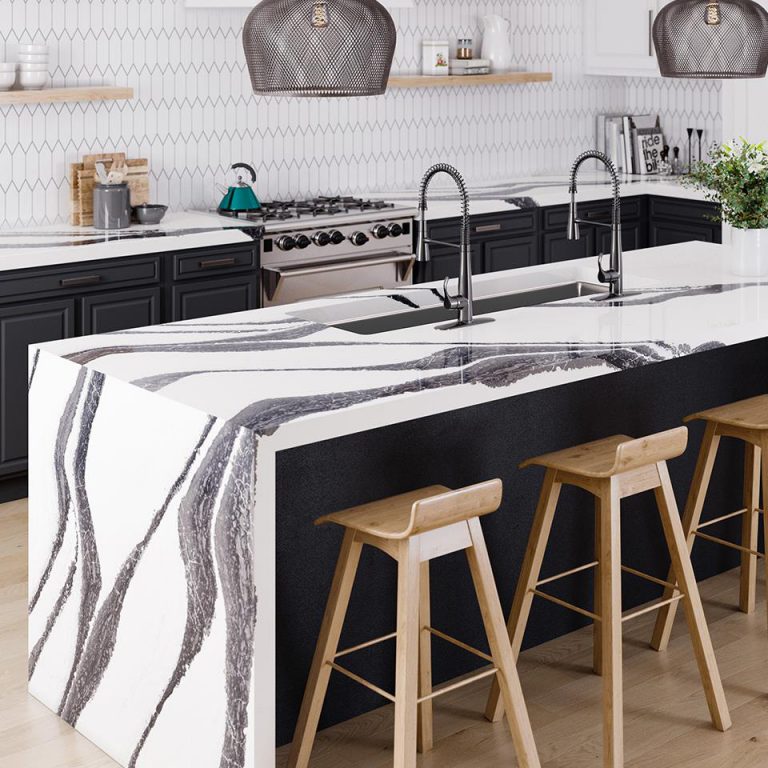
The color and pattern of a quartz countertop is man-made and designed. For this reason, some people may feel that quartz counters lack the charm of granite counters. Others may appreciate the wide range of color options this manufacturing process offers; quartz can come in virtually any color, meaning you can color-match as needed without worrying about availability.
Quartz countertops resemble natural stone, but the pattern and hues are much more uniform. This offers cohesion for those who don’t enjoy granite’s natural flaws. Seams are less noticeable. Quartz is also available in solid colors with little to no pattern.
Appearance of Granite Countertops
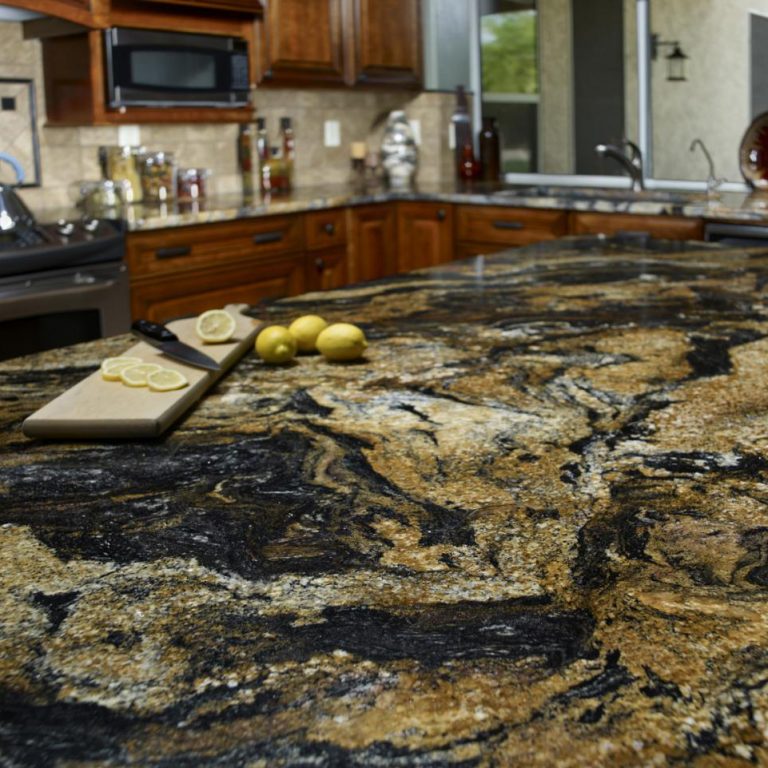
Because they are completely natural, granite slabs are one-of-a-kind. Granite’s color depends on where it was mined and can vary from subtle earth tones to brighter blue, red and green gem tones. Each slab will have natural variations in its color and pattern, and these “imperfections” add character in the eyes of granite-lovers. However, these unique variations will also make seams between cuts of granite more obvious. Professional installation will help minimize the appearance of seams, but they will always be visible.
Additionally, since every slab of granite is unique, you may not be able to replace or extend your granite countertops with a perfect match in the future.
Durability
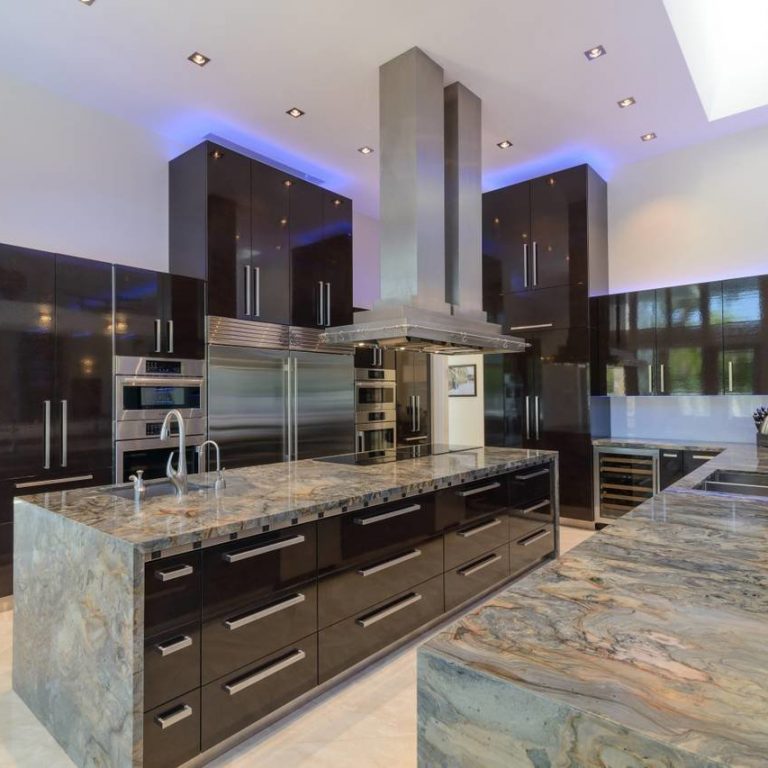
Both granite and quartz countertops are in high demand for their strength and resilience. Granite, however, is more susceptible to chips and cracks due to natural striations in the stone. Striations are grooves formed in stone from movements in the earth, and although they may be invisible to us, are present in cut slabs of granite. Granite is also porous and can absorb stains from oils, wine and other common kitchen messes.
By contrast, quartz’s resin composition makes the engineered stone nonporous, solid and flexible. It resists stains and cracks, although excessive heat can damage both it and granite.
Maintenance
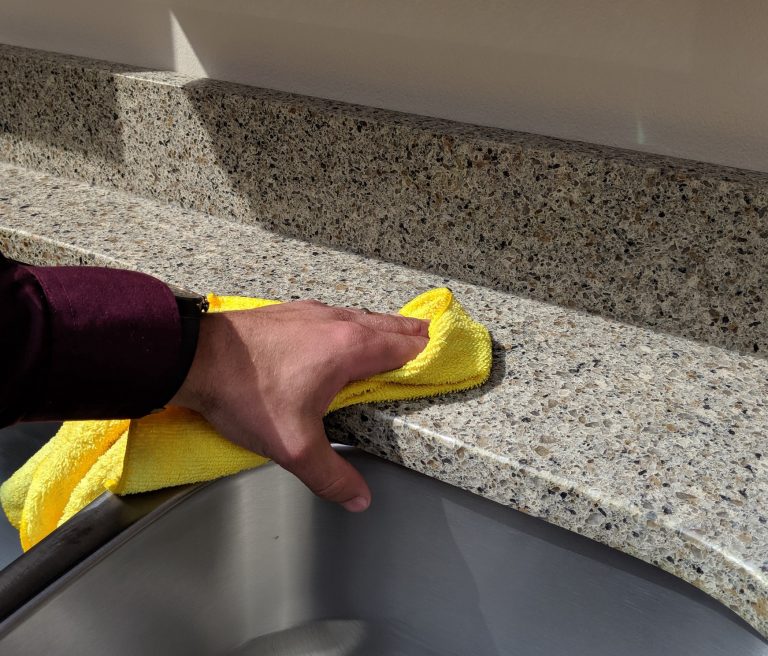
Because it’s porous, granite needs to be sealed and resealed every year to help resist stains and bacteria. Even when the granite is sealed, messes should be wiped up with a cloth as quickly as possible.
Installing black granite countertops or dark brown granite countertops can help disguise lasting marks and stains. Some all-purpose cleansers may be too harsh for granite, so you should clean its surface with mild soap and water or a daily granite cleaner.
Quartz does not need to be sealed and will not absorb stains or bacteria. Even white quartz countertops will not stain. Additionally, many quartz manufacturers add an antibacterial coating to further protect the countertop from carrying germs. You can clean quartz with just a mild cleanser.
Price
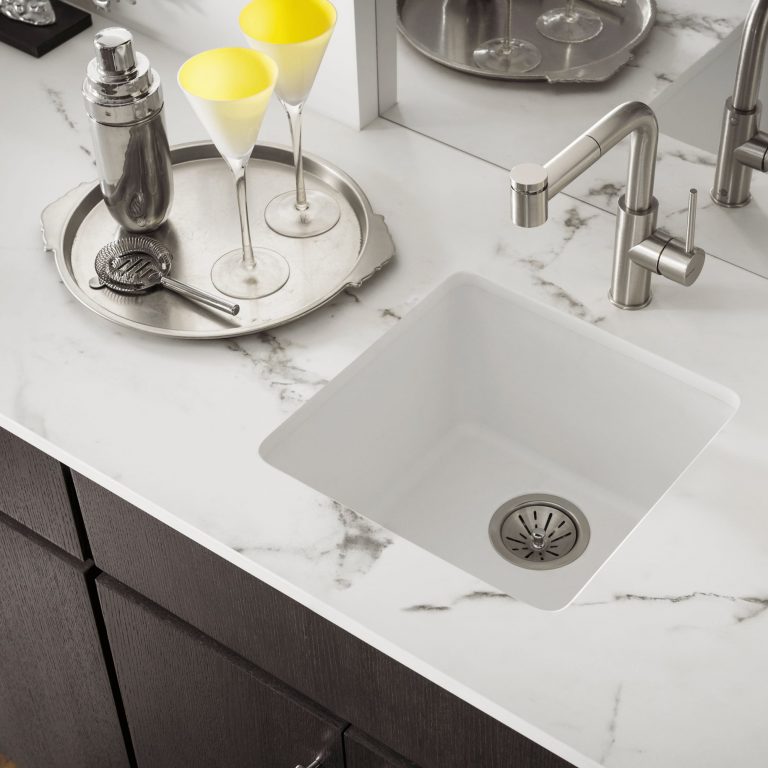
Quartz and granite countertops are priced similarly per square foot, with granite counters having the wider variation in price. Granite can be more expensive than quartz at times, based on the availability of a color and pattern. Sometimes quartz is more expensive due to the treatments it receives during manufacturing.
Now that you know the quartz vs. granite countertops pros and cons, you can decide which is best for your home and start exploring the many beautiful options each stone offers.
learn more about what we provide
check our popular collections

Tips for cabinets shopping after the COVID-19
